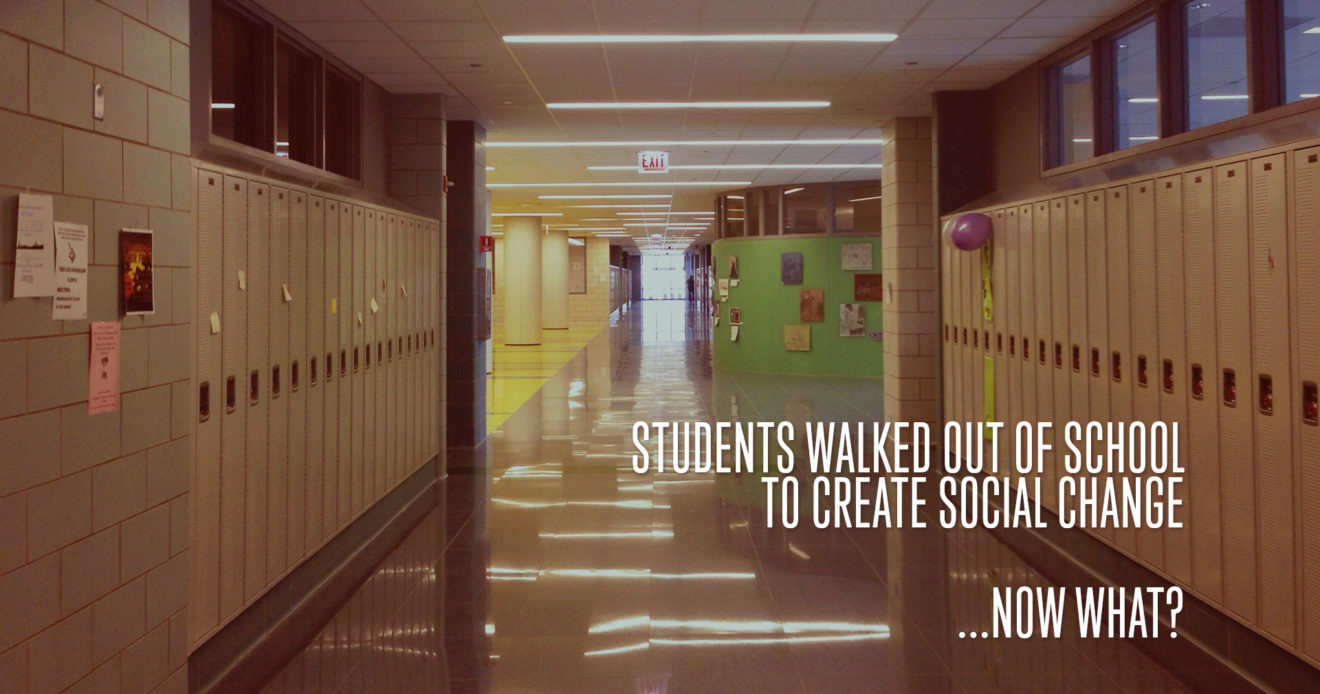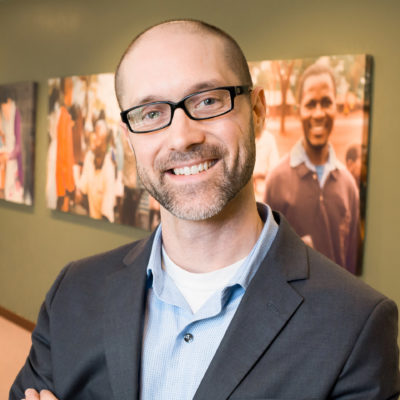
Students Walked Out of School to Create Social Change…Now What?
Thousands of students this week took up the mantle of seeking social change by organizing a national school walkout. Spurred on by the tragedy in Parkland, students’ safety in schools has become a primary focus—and rightfully so. Safe schools ought to be a no-brainer.
But should we be allowing students to walk out of school? Should students be featured on national television and given a platform for their cause? Should students be taking to social media with a “whatever it takes” mentality to create the change they seek?
If you're at all like me, you are a bit conflicted. On the one hand, you are thrilled to see students actively involved and standing up for what they believe in. We talk so much about student apathy; it is almost refreshing to see the exact opposite. But on the other hand, it is easy to question their motives and intention. Are they seeking social change for the good of humanity or are they just trying to be noticed, get on T.V., or merely get out of classes for a few days? Students may walk out today, but what happens tomorrow. Let's be honest, we don't want to think it, but we do.
Over the last few days, I have seen youth leaders of all kinds, engaging in conversation and seeking advice from one another about how to handle this week's walkout event. Some were determined to address it only in passing with their students, some condoning it, others condemning, and still, others ignoring.
I am not sure we should totally condone the effort. But I am certain we can’t ignore nor condemn it either. Because when we look at social change historically, you can’t help but see the church and the movement of the gospel in so many ways. So how can we guide students, discipling them through these issues, so we can harness their passion and their power to create change in our world?
Keep The Gospel at the Center.
Our desire to seek justice or social change ought, to begin with, our desire to see God glorified in such change. The gospel must always be at the center. Throughout its history, the church has been instrumental in initiating social change throughout the world. It was the church's efforts in health care, education, foster care, and disaster relief that paved the way for hundreds of organizations around the world now committed to the betterment of cultures and the human condition.
Social change without the gospel at the center is only dealing with the symptom and not the underlying problem. Standing up for a cause is great. But our students need to ask why? Does the change they are seeking treat a symptom, or does it attempt to put Jesus and the gospel at the center to address the root problem? Think of this way: It is easy to immediately point to firearms as the problem, and the solution for school shootings is to merely eliminate guns. Now, no matter where you fall on this issue, the first step to a solution is to recognize that the problem runs deeper. It is not just a problem with guns. It is a problem with sin and evil. And the only solution to sin and evil is the gospel. The only solution is Christ himself.
But let's get back to original question. How ought students respond? I think it is important that our students feel that they can create change. They have incredible creativity, drive, and plenty of resources at their disposal. But they must first decide what that change is going to accomplish. Is it simply to going address the problem on the surface? Or dig deeper and work to point people in the direction of Christ? Social change without the gospel leads to no changes at all, only more of the status quo. When we seek change, when we seek justice, we ought to primarily be seeking Jesus.
For the Sake of the World, Rather Than Ourselves.
The missional mandate of Scripture is to go into the world, engage the world, for the sake of the world.
The internet has made it increasingly easy to seek popularity for the sake of ourselves and a need to be noticed. It is easy to be caught up doing what others are doing or participating in what you are told is important or popular. But what we need to remind our students is that change can never be about us. It has to be about something bigger than ourselves or even our little corners of the world. It has to be about God, about peace, and about salvation.
Jesus was revolutionary. But the change he brought was centered around peace and the fulfillment of God’s mission to redeem humanity. We call this kind of peace, shalom. It was the kind of peace that only God could bring about. Whether it was Israel seeking salvation in the midst of captivity, Jesus sleeping in the boat in the middle of a storm, Paul content to die knowing he ran the race well and crossed the finish line, or students seeking to attend school feeling safe—peace stands at the center of what it means to bring the kingdom of heaven into the presence of humanity on earth.
Social change, activism, protesting, etc.—in the end, ought to bring about a greater peace. It ought to give us all a glimpse of the kingdom of heaven in our midst.
The change we seek in our world is ultimately an extension of the salvation we all seek. We all want a world that is safer, more peaceful, more just, more prosperous, with less evil, less suffering, and a greater understanding of ourselves and our purpose. All of that is possible. But all of that is only found in Christ. What we seek to do for others and our world is an extension of what God is doing for humanity.
Consider the Consequences.
As a kid, I frequently played the victim and sought justice for whatever cause was in front of me at the time. My parents, God bless them, were instrumental in helping me understand what causes were important, what causes were not, what would get me in trouble, when it would be worth it, and when I was just plain being dumb.
Consider the apostles, the early church fathers, and church legends like Martin Luther and Dietrich Bonhoeffer. They all found ways to operate inside the current political and governmental system, finding the right blend of defiance and submission in order to bring about the greatest amount of change. All the while putting their lives on the line for the sake of others.
This is a hard line to walk, and many of us won't get it right most of the time. However, we cannot assume that students will fully understand the potential consequences of seeking justice and social change. In fact, based on their brain development, they—more than likely—won't consider the cost at all. We have to help them see not only the potential consequences but also the cost of those consequences—long term and short term. We have to help them determine whether the consequences are worth it. In other words, if it does not keep the gospel at the center and is not on mission with the God’s agenda, then it is probably not worth the risk.
Is there any other way? Our students are incredibly creative. Challenge them to seek out the best way to initiate change. Rather than just automatically—almost robotically—participate in a school-wide walkout in support of Parkland, is there another solution? Is there something that is more effective, that will garner more attention, and create real change—the kind of change that gives people a glimpse of God’s kingdom? However, on the flip side, no action is still action. Not acting out of selfish motives is just as damaging. Ignorance and apathy still send a message.
The evil in our world has created far more damage than just what we witness from gun violence. Abortions, opioids, underage drinking, drunk driving, sexual abuse, and racism—to name only a few—are all standing in the way of the peace and justice we so earnestly seek. As a youth leader, parent, pastor, teacher, etc.—it is our job to help students navigate these difficult waters. There is no clear answer. But imagine what our students could do with their desire to create change and the transformative power of the gospel.
Steve Kozak
Executive Director of AwanaYM
Steve currently serves as the Executive Director of AwanaYM. Previously, Steve spent over a decade teaching high school theology and apologetics from Detroit to LA. Steve holds a Masters degree in Theology from Moody Theological Seminary and a Masters in Christian Apologetics from Biola University. Steve is also an adjunct professor at Trinity International University. He speaks and writes on youth ministry, youth culture and apologetics. He resides in Chicago, IL with his wife and four children.FollowSteve Kozak on Twitter: stevenmkozak
Comments
Get the AwanaYM Update
Receive youth ministry resources in your inbox. Subscribe today!
